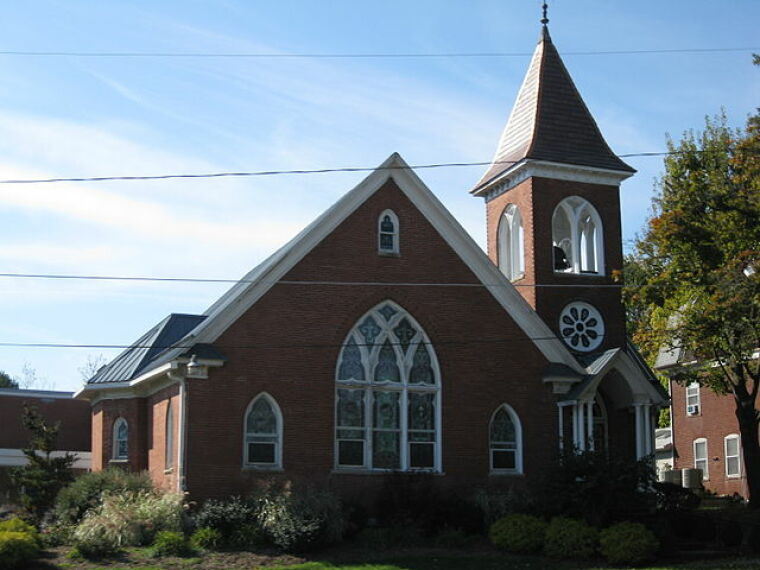Catholic Church accused of 'mob boss approach' in lobby against sex abuse law change in Pennsylvania
Pennsylvania lawmakers accuse the Catholic clergy in the state of employing mafia-like strategies as it lobbies against a retroactive sex abuse bill.
Catholic state representatives who voted for a state bill that allows sexual abuse victims an extended period of filing civil claims up to 50 years old find themselves the target of the Catholic Church in the state led by Archbishop Charles Caput.

State representative Jamie Santora reportedly received an email from the archbishop who accused him of betraying the church and warned him of the consequences for supporting the bill.
"I don't feel I did betray my church," Santora told The Guardian. "Growing up Catholic gave me the ability to vote the way I did. To me that was the morally correct vote, by choosing victims over abusers."
Similarly, Catholic lawmakers Nick Miccarelli, Thomas Murt and Martina White, who accuse parishes of speaking at Mass or in church bulletin against them or subjecting them to cold treatment, argued that they voted for the bill according to their conscience.
Democratic head of Senate in Colorado, Joan Fitz-Gerald, describe the archbishop as "the most vehement supporter of the secrecy of the Catholic church over pedophiles."
She accuses Caput, a previous archbishop in Colorado, of employing the same strategy he used to prevent a similar bill from taking shape in her state.
Chair of the public law at Cardoza School of Law, Marci Hamilton, believes that Caput's relocation to Pennsylvania is part of the Church's plan to quell the legislation.
The church's lobbying arm contends that the retroactive bill which does not apply to public institutions is unfair to private institutions. The church also warned that this could bankrupt dioceses and affect innocent church members.
Hamilton said the church's argument is a strategy that paints the church as the victim while the victims are undermined as only after the money.
A spokesman for Chaput, Ken Gavin, rejected the allegations against the archbishop.
"I am not aware of any situations involving a pastor lambasting an elected official and they weren't directed to do so. I do know of many instances where pastors shared with parishioners how representatives voted on [the bill]. They shared knowledge that is already public," he said.
On Monday, June 13, Solicitor General Bruce L. Castor Jr. announced during the Senate hearing that the bill is unconstitutional.
The bill is currently on a standstill.
Mark Rozzi, proponent of the bill who claimed to be molested by a priest 13 years ago, told Philly, "This makes me feel sick to the stomach. We see justice ahead, and all of a sudden the door is closing in on us. And you know there's forces at work behind the scenes that are derailing this."
 Christians don't have to affirm transgenderism, but they can’t express that view at work: tribunal
Christians don't have to affirm transgenderism, but they can’t express that view at work: tribunal Archaeology discovery: Medieval Christian prayer beads found on Holy Island
Archaeology discovery: Medieval Christian prayer beads found on Holy Island Presbyterian Church in America votes to leave National Association of Evangelicals
Presbyterian Church in America votes to leave National Association of Evangelicals Over 50 killed in 'vile and satanic' attack at Nigerian church on Pentecost Sunday
Over 50 killed in 'vile and satanic' attack at Nigerian church on Pentecost Sunday Ukrainian Orthodox Church severs ties with Moscow over Patriarch Kirill's support for Putin's war
Ukrainian Orthodox Church severs ties with Moscow over Patriarch Kirill's support for Putin's war Islamic State kills 20 Nigerian Christians as revenge for US airstrike
Islamic State kills 20 Nigerian Christians as revenge for US airstrike Man who served 33 years in prison for murder leads inmates to Christ
Man who served 33 years in prison for murder leads inmates to Christ


 Nigerian student beaten to death, body burned over ‘blasphemous’ WhatsApp message
Nigerian student beaten to death, body burned over ‘blasphemous’ WhatsApp message 'A new low': World reacts after Hong Kong arrests 90-year-old Cardinal Joseph Zen
'A new low': World reacts after Hong Kong arrests 90-year-old Cardinal Joseph Zen Iran sentences Christian man to 10 years in prison for hosting house church worship gathering
Iran sentences Christian man to 10 years in prison for hosting house church worship gathering French Guyana: Pastor shot dead, church set on fire after meeting delegation of Evangelicals
French Guyana: Pastor shot dead, church set on fire after meeting delegation of Evangelicals ‘Talking Jesus’ report finds only 6% of UK adults identify as practicing Christians
‘Talking Jesus’ report finds only 6% of UK adults identify as practicing Christians Mission Eurasia ministry center blown up in Ukraine, hundreds of Bibles destroyed: 'God will provide'
Mission Eurasia ministry center blown up in Ukraine, hundreds of Bibles destroyed: 'God will provide' Church holds service for first time after ISIS desecrated it 8 years ago
Church holds service for first time after ISIS desecrated it 8 years ago Burger King apologizes for 'offensive campaign' using Jesus' words at the Last Supper
Burger King apologizes for 'offensive campaign' using Jesus' words at the Last Supper Uganda: Muslims abduct teacher, burn him inside mosque for praying in Christ’s name
Uganda: Muslims abduct teacher, burn him inside mosque for praying in Christ’s name